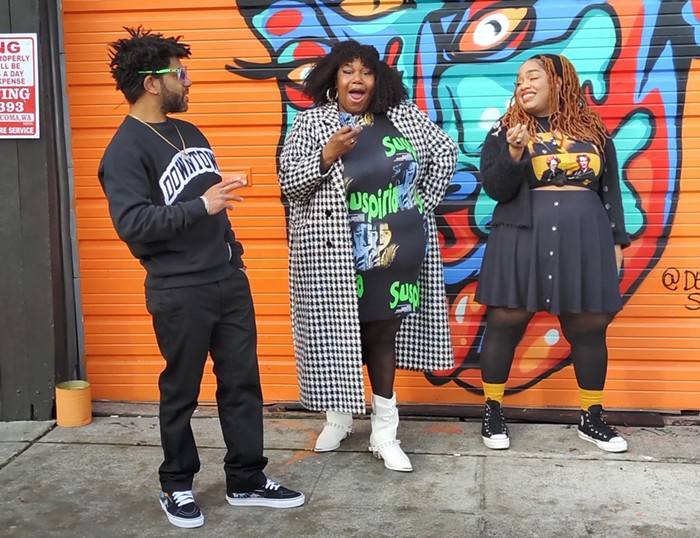In most Washington cities, getting weed is as easy as pulling on soft pants and wandering down to the neighborhood pot shop. Not so in Federal Way, a city of almost 90,000 at the southern end of King County.
Federal Way is a former logging town that's now largely suburban. The only reason you'd register that you're driving through it is the Wild Waves Theme & Water Park on the side of I-5, which looks a bit like Daytona Beach, but tiny and in a parking lot.
Federal Way is also one of the few townships in Washington to ban recreational cannabis: In 2015, after Washington voters approved recreational weed across the state, the residents of Federal Way did exactly the opposite and voted to ban pot shops within city limits. You'd think an area whose main attraction is a water park would see the need for pot shops.
Federal Way might, however, be coming around. This summer, the Federal Way City Council decided to put pot shops back on the ballot.
The question of whether Federal Way should allow pot shops is heated. A city council candidate recently accused the deputy mayor of taking "bribes" from the cannabis industry. Those "bribes" were actually perfectly legal campaign contributions, but for many in Federal Way, allowing in pot shops is sort of like inviting in the devil.
One of the most vocal opponents of lifting the ban is Jack Walsh, the owner of Sub Zero Ice Cream and Yogurt, and a member of a cannabis advisory committee appointed by the city council.
He told me his main concern is that legalizing pot shops sends a message to kids that weed is okay. He pointed out that studies have shown using cannabis as a young person can impede memory and intellectual development, and that there is some correlation between smoking weed and psychosis.
While this is true, it's also true that rates of teen pot use have not gone up since Washington legalized cannabis. When I asked if he thinks that the presence of bars in Federal Way make it more likely for teens to drink, he said no, and besides, "Bars are an established part of community and culture," which I guess makes them all right.
Allison Taylor, a social worker as well as the chair of the 30th District Democrats and a member of the pro-pot committee, said Walsh's argument is both outdated and not backed up by evidence. "Kids have been smoking marijuana forever," she said. "If anything, legal pot shops decrease marijuana on the black market."
At the same time, Taylor says, allowing pot shops will increase revenue Federal Way can spend on other services. In Auburn, a slightly smaller city than Federal Way, pot shops bring in over $300,000 in tax revenue per year. While this is a small percentage of the overall budget, Taylor says it's money that is greatly needed in Federal Way, especially for funding youth services.
It's also an issue of access. The closest pot shops to Federal Way are in Des Moines and Fife, and can take hours to access via public transit.
"If someone is using marijuana for pain management, that is not okay," Taylor said. "People say it's a gateway drug, but we all know that's not true. In fact, I think we would have a lot less addiction to other drugs if we used weed as a medicine more often, but this area tends to be stuck in the 1950s."
Whose side will the voters of Federal Way take? We'll find out in November.

















